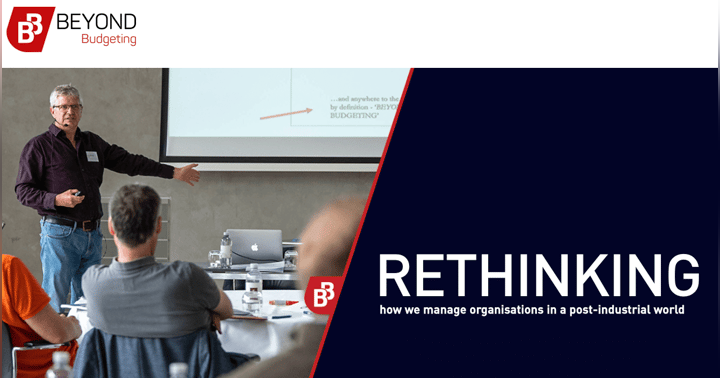
Growth isn't just about getting bigger, it's also about getting better. According to Dominic Rodgers, Head of Marketing at Frog Capital, if you want your business to thrive, you need more than just profit. You need purpose.
Enter purposeful growth, a strategy that not only scales your business but also makes a positive impact on the world. This is about aligning your business's expansion with your core values and long-term vision.
- But what does purposeful growth look like in practice?
- How do you make it a reality?
To get some answers, we invited Dominic into the Unicorny studio to explore the playbooks and techniques used by Frog Capital, a company that’s been making purpose pay in a big way.
What is Purposeful Growth?
Over the past few years, the whole idea of purpose has been brushed off as a pointless trend. It was a passing fad, the critics argue. Brands definitely jumped on the purpose bandwagon, by using it as a way to look current and relevant by tying themselves to social causes.
Hellmann's mayonnaise is a very famous example. Unilever earned a raft of eye-rolls when they kicked off a campaign about cutting down on food waste. Critics argued that aligning a mayonnaise brand with a cause as significant as food waste felt like a forced and tenuous connection. Simply, it seemed more like a marketing ploy than a genuine commitment.
This kind of backlash illustrates the challenge brands faced in integrating purpose into their core values with authentically. If the connection between the product and the cause isn't clear or meaningful, it risks coming off as disingenuous, diminishing the credibility of both the campaign and the concept of purpose-driven marketing.
But that’s not what true purpose is about.
Imagine a business model where growth is part of a virtuous circle: purpose drives performance, which in turn feeds purpose. That’s how we’re defining purposeful growth. At Frog Capital, this isn’t just a theory; it’s their daily practice.
They have a well-oiled system - complete with toolkits, templates, and a clear methodology - that guides their portfolio companies through the challenges of scaling. And they are not just any companies; they are European scale-ups that strive to make a positive societal impact.
Thus, purposeful growth isn't just about bigger sales figures or expanding your team. It's about building a business that makes a difference - by solving real problems, adding genuine value, and aligning with the things that matter to you and your customers. It's growth that's grounded in why your business exists, not just how it can make money.
The Frog Capital Playbook: A Roadmap to Success
Frog Capital's approach is centred on what they call the "scale-up wheel" which addresses the key areas necessary for businesses to transition from start-up to scale-up.
Here’s a breakdown of how they do it:
- Day-to-Day Execution: This involves the nuts and bolts of running a business daily. It includes customer acquisition, product or service delivery, and customer success management. The goal is to make sure that every interaction adds value and moves the business closer to its purpose.
- Strategic Planning: Medium-term planning focuses on strategy development, people management, and organisational structure. At Frog, this means ensuring that the right talent is in place, teams work effectively, and organisational structures support growth. It’s about having the right people in the right places, all aligned with the business's core values.
- Long-Term Sustainability: This is where purpose really shines. Frog looks at resilience, purpose, and ultimately, value. It’s about ensuring that businesses are not only profitable but also making a lasting impact. Purpose acts as the North Star, guiding the company through changes in strategy and market conditions.
Why Purpose is More Than Just a Buzzword
In the world of Frog Capital, purpose isn’t a marketing gimmick; it’s the core of everything they do. They use the Impact Management Platform (IMP) framework to assess the impact of potential investments, looking closely at how these businesses contribute to societal goals, who benefits from their operations, and whether they serve underserved communities.
Purpose is not just a nice-to-have; it’s a must-have. It helps businesses stay focused, resilient, and innovative. By fostering a culture that values purpose, companies can attract top talent, inspire employees to do their best work, and create brand loyalty.
It’s a powerful advantage in competitive markets and one of Frog Capital’s strengths, therefore, lies in the practical tools and resources it offers.
Frog doesn’t just talk about purposeful growth; it provides the templates, toolkits, and frameworks to make it happen. Whether it’s a fill-in-the-blanks form to develop business strategy or downloadable spreadsheets to track progress, these resources are designed to take the guesswork out of scaling up.
Real-Life Examples: Purpose Meets Profit
- Clue Software provides investigative and intelligence software that helps law enforcement and corporate clients solve crimes and increase security. Their purpose is clear: create a safer society. And by fulfilling this purpose, they also grow their business.
- Modulr provides payment software that simplifies payroll and disrupts outdated systems. Their purpose is to increase productivity, and in doing so, they also pave the way for innovation and growth.
Purpose as a Catalyst for Growth
Aligning purpose with business goals isn’t about making sacrifices; it’s about making smarter choices.
Dominic Rodgers from Frog Capital puts it perfectly: “Purpose forces you to act intentionally.” It’s about knowing who you are, what you stand for, and being strategic in how you grow. Purpose isn’t just about being good; it’s about being strategic.
Rodgers argues that having a clear purpose is a competitive advantage that spans across focus, attitude, sustainability, and team dynamics. It’s about creating a business model where the more you grow, the more you fulfil your purpose, and the more impact you make. It’s a win-win.
To be clear, purposeful growth isn’t a lofty ideal. It’s a practical strategy that businesses can adopt to scale responsibly and sustainably. It’s about using purpose to create a roadmap that guides every decision and action. Whether you’re a small business owner or a marketing leader, aligning your growth strategy with your core values will help you build a business that’s not only profitable but also meaningful.
Ready to make your growth purposeful? Start by integrating purpose into every aspect of your business. Use it to guide your strategies, inspire your team, and connect with your customers on a deeper level. The rewards aren’t just financial—they’re transformational. And, if you’d like to talk some more about building growth flywheels, why not drop Dom a line?


